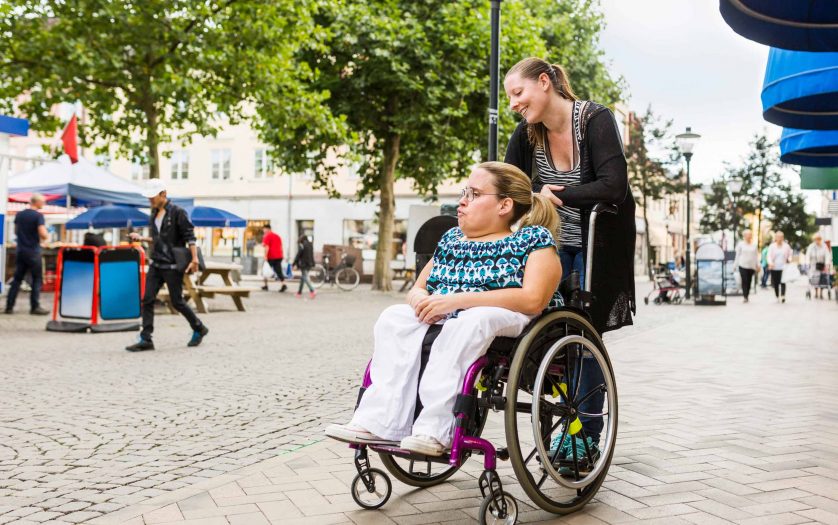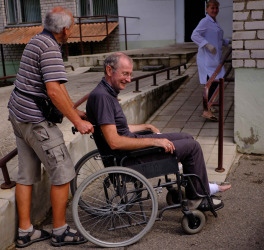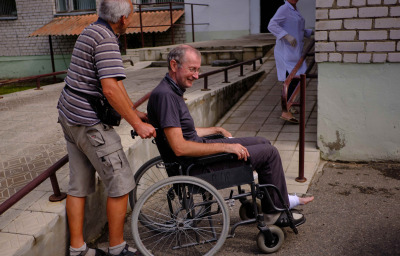
Disability Ministers came together in Canberra last Friday to set collective priorities for the year ahead, focused on improving the lives of people with disabilities.
This represents the first meeting of the Disability Reform Ministerial Council (DRMC) as represented in the new federation architecture, formerly the Disability Reform Minister’s Meeting.
As a Ministerial Council, the DRMC will now report directly to National Cabinet, signifying the importance the Australian Government is placing on matters affecting people with disability.
Minister for the NDIS, the Hon. Bill Shorten said the meeting was of national importance and is proof that governments are working together with people with disability to improve outcomes.
“Since coming into Government we have been steadfast in our efforts to help ensure no person with disability is left behind,” Minister Shorten said.
“It was good to see progress on key items of work that are improving outcomes for people with disability, including reducing hospital discharge delays.
“Together with State and Territory Ministers, we have mapped out our priorities for the next year, and discussed how we can work together to make real, tangible differences in the lives of people with disability around the country.”
Ministers agreed to a number of priorities for the year including improving outcomes and building evidence base; closing market gaps and ensuring access to quality and safe services; accessible communities; ensuring the NDIS and mainstream system work well together; and delivering the NDIS Review.
Minister Shorten welcomed special guest Mr Dylan Alcott AO to the meeting who shared reflections on his time as Australian of the Year and presented on his work in the sector.
“Mr Alcott’s work continues to put a national spotlight on disability rights and this year has been ground-breaking, from delivering the Get Skilled Access and Accenture NDIS 2.0 paper to launching the disability employment website The Field,” Minister Shorten said.
“I thank Mr Alcott for his tireless efforts advocating for a more inclusive Australia and commend his remarkable achievements this year.”
Ministers endorsed the report from the 2022 Australia’s Disability Strategy Forum, which provided an opportunity for people with disability to discuss and shape the implementation of the Strategy.
Minister for Social Services Amanda Rishworth said the Albanese Labor Government was focused on the many different ways the lives of people living with disability could be improved – from employment to the support frameworks for early childhood development.
Working alongside State and Territory Disability Ministers via DRMC, silos in policy development could be minimised, Minister Rishworth said.
“There are 4.4 million Australians living with disability – that’s one in six of us – and it’s important the supports we provide as Governments are embedded right across society,” Minister Rishworth said.
“The Albanese Government is committed to creating a better life for Australians with disability, and the Disability Reform Ministerial Council helps us share this commitment with all States and Territories.
“At a Commonwealth level we’re committed to supporting employers to understand and work with people with disability to create inclusive workplace cultures that allow people with disability to thrive. We’re also doing things like working on a National Autism Strategy and embedding supports for young people living with disability into our Commonwealth Early Years Strategy.”
Ministers also endorsed the work plan for the Australia’s Disability Strategy Advisory Council, which has a critical role in the implementation and monitoring of the Strategy, paving a clear way forward for the Strategy’s important work.
The Disability Reform Ministerial Council also:
- Heard and discussed an update on the work of the NDIS Review.
- Endorsed the report to National Cabinet on the Improving Care Pathways recommendations.
- Discussed progress to reduce hospital discharge delays to 33 days down from 160 days in early 2022.
- Discussed failure to meeting the Royal Commission into Aged Care Quality and Safety target to prevent young people entering aged care and the need to work together across governments to tackle this issue.
- Agreed to accelerate a nationally consistent approach to regulatory settings around restrictive practices.
- Heard updates on the COVID-19 response for people with disability.
- Endorsed the Supported Employment Principles which will guide a plan to evolution of the supported employment sector so that it remains viable, and better meets community expectations.
- The next Disability Reform Ministerial Council will be held in March 2023.
The communiqué for the Council meeting is available on the Department of Social Services website.








